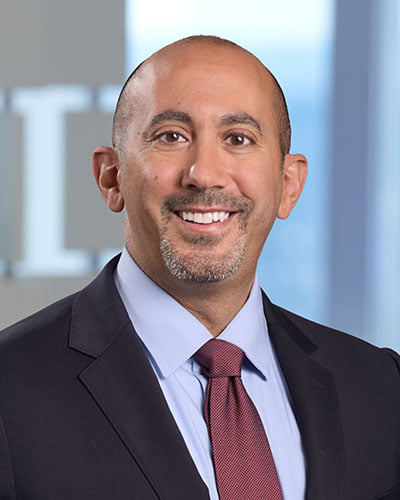The House Committee on Oversight and Accountability recently held a hearing titled “ESG Part I: an Examination of Environmental, Social, and Governance Practices with Attorneys General.” The hearing covered a range of topics, including fiduciary duties, antitrust and consumer protection, proxy voting, ERISA, and the banking, insurance and utilities industries. In this Alert, we unpack the nearly four-hour hearing and where it fits into the broader debate over ESG integration by asset managers.
At the hearing, members of the Committee questioned three witnesses: Alabama Attorney General Steve Marshall, Utah Attorney General Sean Reyes and Illinois State Treasurer Michael Frerichs. The attorneys general were witnesses for the Republican majority. Mr. Frerichs was a witness for the minority.
The hearing is just one of the more recent in a line of anti-ESG initiatives, which have been coming fast and furious over the last several weeks. These include, among others:
- A March 2023 open letter from 21 state attorneys general, including Attorneys General Marshall and Reyes, criticizing asset managers’ involvement with ESG matters. The letter cites a variety of concerns, including whether managers’ reliance on proxy advisor recommendations on ESG matters and managers’ commitments to organizations focused on ESG topics (e.g., the Net Zero Asset Managers Initiative (NZAM) and Climate Action 100+) trigger fiduciary duty breaches and antitrust violations.
- The May 2 signing by Florida Governor Ron DeSantis of House Bill 3, “An Act Relating to Government and Corporate Activism.” The Act is one of the strictest and most restrictive anti-ESG laws adopted to date, imposing significant new compliance obligations on asset managers and other financial institutions. The Act is discussed in our earlier Alert here. The Act is just one of the more than 250 state ESG-related bills under consideration. Be sure to check out our award-winning interactive website, Navigating State Regulation of ESG Investments, which tracks the latest ESG-related legislation, executive actions and initiatives, and coalition activities, as well as changes to state retirement plan investment policies across the United States.
- On May 3, the Oklahoma Treasurer published a restricted list naming 14 well-known managers. Under legislation adopted in 2022, the State Treasurer is required to prepare a list of financial institutions that boycott energy companies within the meaning of the legislation.
- In mid-May, the Montana and Alabama attorneys general issued civil investigative demands to asset managers. The CIDs are focused on the managers’ participation in various climate-related initiatives. Similar demands were made by the Louisiana Attorney General in late April.
- On May 10, 17 Republican attorneys general filed a motion with the Federal Energy Regulatory Commission (FERC), seeking to intervene in a large asset manager’s reauthorization to acquire stakes in utilities. Previously, 13 Republican state attorneys general had filed a motion to intervene in another large asset manager’s FERC reauthorization.
- Finally, on May 11, three New York City pension funds were sued for breach of fiduciary duty in connection with their sale of holdings in oil and gas companies.
At the hearing, the House members and witnesses hit upon many of the same themes as the March open letter, in a process that was part monologue and part questioning of each party’s respective witness(es).
The “Part I” hearing focused on a few major themes of disagreement, including the fiduciary duties of asset managers, antitrust and consumer protection issues and the use of proxy advisor recommendations. In doing so, the discussion highlighted the deep divide between Republicans and Democrats on the role of ESG in investment decisions and corporate governance. While Republicans emphasized concerns about breaching fiduciary duties, antitrust issues, and potential economic repercussions, Democrats defended ESG as an important tool for assessing risk and making informed decisions.
Although not as entertaining as some other Part I’s (the Godfather and Mel Brooks’ History of the World jump to mind), the hearing nevertheless had its moments.
The Battle over Fiduciary Duties: Balancing Profitability and Principles
The heart of the disagreement revolved around the fiduciary duties of asset managers. Republicans argued that considering ESG principles imposes asset managers’ own view of morality through undemocratic means, and doing so poses a threat to economic prosperity, national security, and the democratic process. Republicans insisted that prioritizing ESG principles over profitability breached fiduciary duties. As the Alabama Attorney General notes in his written testimony, “[p]rioritizing some investments, loans, or insurance policies, and excluding other investments, loans or insurance policies, based on woke ESG principles instead of potential profitability is inconsistent with companies’ fiduciary duties.” When asked how Congress can help ensure firms are not introducing ESG policies into retirement funds and solely focus on maximizing returns, the majority’s witnesses suggested that Congress can clarify the definition of “fiduciary duty” to make it clear that objective criteria, and not subjective ESG criteria, are considered. Republican members also argued that asset managers breach their fiduciary duty when they commit to pledges, e.g., CA100+, the Glasgow Financial Alliance for Net Zero or NZAM, because their decisions are prescribed by the groups to whom they pledge rather than what is in the best interest of their clients.
The Democratic lawmakers, on the other hand, defended ESG factors as providing crucial data points for assessing investment risks and argued that long-term fiduciaries should be able to consider them, especially when managing assets such as public pensions. Mr. Frerichs indicated that, when investing portfolios such as public pension assets, the time horizon of the investments is long, and as a result, managers’ consideration of ESG factors like climate risk are more relevant to a risk assessment. Mr. Frerichs noted that there is no mandate to consider or utilize ESG data, and he argued that investors should be able to consider what they find useful. Mr. Frerichs also cited various case studies to support his argument that anti-ESG legislation and asset manager blacklists have negative economic impacts, with the Ranking Member Jamie Raskin suggesting these states “would rather be broke than woke.” Further, Mr. Frerichs argued that the anti-ESG effort was an attack on the investment profession to restrict investors’ freedom to exercise their professional discretion and fiduciary duty, stating that “to ask investment professionals to ignore material risks and investment opportunities is asking us to stop doing our jobs.”
The debate intensified as each side presented studies supporting their claims as to whether ESG funds outperform or underperform traditional indexes and whether they were consistent with fiduciary duties. As part of this wider debate, multiple Republican state attorneys general have issued new interpretations of fiduciary duties that would limit the ability of retirement plan fiduciaries to consider ESG factors.
Antitrust and Consumer Protection: Unraveling the Impact of ESG Alliances
Antitrust and consumer protection issues emerged as a significant theme, mirroring concerns raised in the open letter. Republicans expressed concerns about potential anticompetitive behavior stemming from ESG alliances like CA100+ and NZAM. They accused these alliances of restricting trade and commerce, raising prices, and harming consumers. One example repeatedly raised was whether energy prices rise when firms direct money away from companies investing in fossil fuels.
The attorneys general emphasized ongoing antitrust investigations into these alliances and their potential influence on companies’ decision-making processes. In his opening statement, Attorney General Marshall stated that “ESG activity is subject to antitrust laws, as the Biden administration has publicly confirmed.” He further stated that “since President Trump’s election, the global elites have formed at least ten alliances dedicated to implementing radical ESG plans,” and that “these alliances threaten consumers by limiting output, raising prices, risking retirement funds, and creating anticompetitive conduct.” He went on to state that “alliance members appear to be conspiring and combining to restrain trade and commerce by colluding with other members to reduce competition amongst themselves and coordinating restricted investment and action toward specific companies unless ESG policy objectives are implemented.”
Later, in response to a question from Democratic Representative Katie Porter on corporate action, Attorney General Marshall stated that “the analysis…would not necessarily be whether or not that individual company changed its policy. The question is whether or not they were compelled to do so for otherwise unlawful reasons. It is one of the reasons why, you see, currently, that there are active antitrust investigations involving multiple players on the ESG front, including Climate Action 100 and the Net-Zero Banking Alliance, and our evaluation there is whether their actions incur corporations to make decisions that otherwise wouldn’t be appropriate for them to make.”
Attorney General Reyes also referenced antitrust implications of ESG agreements in his opening statement, commenting that “ever since the signing of the Paris Agreement there has been an open conspiracy” among these organizations to “use their collective market power over tens of trillions in assets to force burdensome changes on American companies.”
The Role of Proxy Advisors: Facilitators of Fiduciary Duty Breaches?
The discussion expanded to include the role of proxy advisory firms, which provide institutional investors with research and data, as well as voting recommendations.
Republicans contended that proxy advisory firms aligned their recommendations based on ESG goals of groups like CA 100+ rather than shareholders’ best interests. They criticized the lack of transparency in these recommendations and raised concerns about “racial quotas” violating anti-discrimination laws. Republicans also took the opportunity to criticize the SEC’s no-action letter process and argued that, even when SEC fails to grant no-action relief, the proxy advisors should not be allowed to recommend in favor of otherwise unlawful proposals. In January, Attorneys General Reyes and Marshall joined 19 other state attorneys general in sending a letter to the primary two proxy advisory firms criticizing their actions and positions relating to climate change and diversity topics, contending that such commitments may interfere with their legal and contractual obligations.
Democrats countered by asserting that proxy advisors do not vote shares; they merely provide recommendations and that the evidence supported the profitability of ESG-related proposals.
Broadening Impact: ESG’s Reach into FERC, ERISA, and Banking and Insurance
Federal Energy Regulatory Commission. As the ESG debate continued, Republican Committee members turned their attention to the FERC and its role in regulating asset managers’ ownership of utility companies. They argued that managers were exerting undue influence over the operations of these companies and urged the Committee to launch a full-scale investigation into this behavior and to regulate climate action organizations under the Federal Power Act.
Department of Labor’s ERISA ESG Rule. Another hotly debated topic at the hearing was the Department of Labor’s recent rule that removes impediments imposed by the Trump administration to ERISA fiduciaries considering ESG factors in investments and shareholder voting, as long as those ESG factors are only considered as part of making investments in the best interest of plan participants and beneficiaries. During his testimony, Attorney General Marshall called on Congress to amend ERISA if ESG factors were going to be integrated into the investment selection process. Republican members argued that the DOL’s alleged endorsement of ESG policies undermined the democratic process by advocating for measures that should require Congressional approval. Mr. Frerichs, in response to questioning, stated that the DOL rule is permissive and does not impose a mandate.
Attorneys General Reyes and Marshall, and 24 other state attorneys general, are leading a legal challenge against the DOL’s rule. Their claims include allegations of it being contrary to law, arbitrary and capricious, and in violation of the major questions doctrine. That case is pending in a Texas federal court, and the plaintiffs have moved to try and resolve the case quickly.
Banking and Insurance Industries. Republicans highlighted their concern that ESG principles not only affected asset mangers, but also posed threats to the banking and insurance industries. They argued that ESG practices limited access to insurance and loans for critical sectors, such as agriculture. Committee Chair James Comer concluded the hearing by warning that ESG principles will lead to unlawful alterations of underwriting activity at large banks and accusations of discrimination based on religious or political affiliation. Attorney General Reyes referred to a letter that he, along with Attorney General Marshall and 17 other state attorneys general, sent to a large bank alleging discrimination based on religious or political affiliation. In response, the Democrats’ witness countered by citing the economic costs associated with recent state anti-ESG legislation, such as the Texas law prohibiting state contracts with financial institutions that boycott energy companies within the meaning of the Texas law. In a separate but related development, nine members have withdrawn from the Net-Zero Insurance Alliance due to anti-ESG pressure, with the withdrawals accelerating over the last few days.
What Comes Next?
The title of the hearing, “ESG Part I,” suggests there will be more hearings. While the specific subject matter and timing of subsequent hearings is an open question (and was not discussed in the hearing), we expect more hearings in the not too distant future, particularly with the upcoming election cycle. In any event, we expect these same themes and arguments – on the left and the right – to continue to be made in future hearings, political commentary and litigation and enforcement proceedings, as well as in connection with proposed legislation.
About Our ESG, CSR and Business and Human Rights Compliance Practice
Ropes & Gray has a leading ESG, CSR and business and human rights compliance practice. We offer clients a comprehensive approach in these subject areas through a global team with members in the United States, Europe and Asia. In addition, senior members of the practice have advised on these matters for more than 30 years, enabling us to provide a long-term perspective that few firms can match.
For further information on the practice, click here.
Authors


Stay Up To Date with Ropes & Gray
Ropes & Gray attorneys provide timely analysis on legal developments, court decisions and changes in legislation and regulations.
Stay in the loop with all things Ropes & Gray, and find out more about our people, culture, initiatives and everything that’s happening.
We regularly notify our clients and contacts of significant legal developments, news, webinars and teleconferences that affect their industries.





